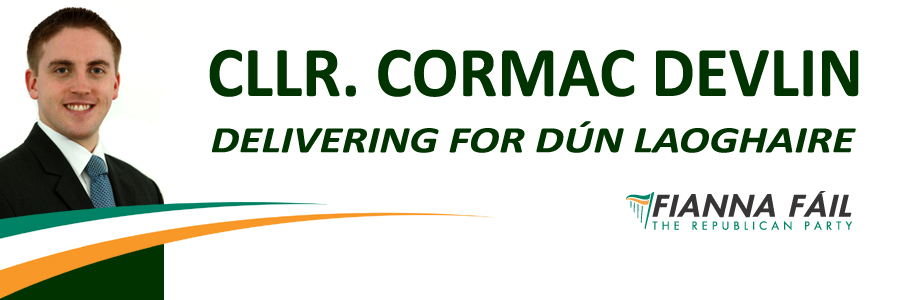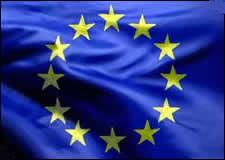Uachtarán Fhianna Fáil Micheál Martin TD - Dáil Éireann, Wednesday 6th June 2012 (Check Against Delivery)
Over the last year and a half we have had a steady stream of these EU statements. In our contributions, Fianna Fáil has concentrated on making constructive suggestions rather than join other voices on this side of the House who prefer to attack everything and pretend that there are easy answers. We believe this crisis is just too serious for the type of politics which the government used to win votes in the general election and others are now following.
Today I am again going to propose specific actions which need to be taken by the leaders of Europe. However, and I have to be quite clear in this, the refusal of the Taoiseach and his colleagues to show any ambition or urgency is becoming ever more stark.
It remains the case that in the fifteen months that this government has been in office nobody has set out clearly what it is that Ireland is pushing for in Europe. All we have seen is support for the proposals of others once they look as if they have a chance of being accepted.
The most recent informal summit of EU leaders was another in a long line of meetings where nothing concrete was achieved and Europe’s problems continued to mount. Events have already overtaken the empty optimism and vague generalities which the Taoiseach issued when the meeting concluded.
After four years of emergency meetings the situation today is that Europe is on the edge of a deeper and more profound crisis. Last year there was a chance for bold action to keep the Eurozone intact and stop the domino-effect of countries being driven out of the bond market. That chance was wasted because of a reluctance to take any bold action. An incremental approach of doing the minimum possible to get some relief continues to do immense damage.
Today it is accepted by nearly everyone that the Eurozone will lose at least one member. The sovereign debt crisis has escalated, with Spain and Cyprus requiring help perhaps as soon as in the next few days – and Italy may shortly follow. Allied to this the financial system is again in turmoil, with emergency funding being all that is hold it together.
Where last year the issue was maintaining a 17-member Eurozone now the issue is whether or not we can prevent a lost decade of deflation and unemployment which will be felt far beyond Europe.
This is no time for sitting back and respecting the niceties of established protocol – there is an emergency underway which can only be addressed if the leaders of Ireland and Europe take radical and rapid steps. We need a real diplomatic initiative which reaches agreement within weeks not the months that are being signalled.
There are specific actions which are required to restore the fiscal, financial and employment situation in Europe. The time has come for Ireland to say unequivocally what it is calling for – and for a real diplomatic initiative to be launched behind it.
REFERENDUM RESULT:
Last week’s referendum gives us real credibility in this task – we need to follow it up with real action not just statements targeted at the Irish media.
Last year I said during one of these debates that protecting the democratic legitimacy of our engagement with the European Union was absolutely essential. This legitimacy has been built up over the course of fifty years but will disappear if the people are excluded from important decisions. For this reason my party was the first to call for a referendum on the Stability Treaty, arguing that the government’s preferred route of parliamentary ratification could cause immediate and lasting damage.
Thankfully the Attorney General was able to convince her colleagues to proceed with a referendum. While the rushed manner of the vote maximised the risks, the outcome is a decisive one.
Just as importantly the Irish people have said very clearly that they want Ireland to participate in a wider European effort to tackle this crisis. They have rejected unilateral and isolationist policies and reaffirmed their belief in a Union which has enabled immense progress which remains intact even today.
They are angry with the failures of Europe’s leaders, but they still see Europe as the only context in which we can grow and prosper.
There has been an effort by anti-EU groups to diminish the result by claiming that it was secured by scare tactics. The same people based their entire campaign on claims that the Treaty’s passage would lead to a slash-and-burn policy for public services and the end of all national sovereignty.
For some the campaign was just an opportunity to seek political gain, the clearest example of this being last week’s High Court case in order to get publicity rather than address a serious issue.
The people saw through these cynical tactics and passed the referendum by a decisive margin.
During the campaign I spent as much time as possible directly engaging with people in their communities and homes throughout the country. I found the thousands of people I talked to be highly engaged with all of the issues surrounding the Treaty. They had an instinctive understanding of the need to put aside party politics.
The people have spoken and we need to be careful not to either over-claim or dismiss what they have said. I believe that the result says three significant things:
It says that Ireland understands the need for a credible mechanism to ensure sustainable public finances over the long term;
It says that we want to have the possibility of accessing EU funding if this is the only affordable way of paying for public services; and
It says that we want Europe to lead a solution to the crisis which we and many other countries are caught in.
As anyone who pays even basic attention to the news can see, the Treaty is not capable of solving the crisis by itself – it is one part of a wider framework. This Treaty should have been accompanied by other measures. It has been claimed that going first with the fiscal controls is necessary in order to get others to agree more radical steps. The time for those steps is now.
SOVEREIGN DEBT:
The sovereign debt market for all but a handful of Eurozone countries is either closed or becoming unsustainably expensive. In most cases this is in no way justified by the fundamentals of the countries concerned. Both Britain and the USA have higher debt and deficit levels than the Eurozone yet their costs of borrowing are actually falling.
A fundamental design flaw of the Euro remains that investors can be unsure about the redemption of their bonds because of the absence of a lender of last resort. This is driving up risk and effectively closing down the market. By its secondary-market bond purchases the ECB has made matters worse.
The only conceivable alternative which can reduce risk and lower the cost of borrowing is for the joint guaranteeing of government bonds. These have been termed Eurobonds and they would mean higher costs for a handful of countries but they would immediately return long-term stability to the market. The adoption of the Stability Treaty gives a credible legal foundation for the controls necessary to make Eurobonds work.
FINANCIAL SYSTEM:
The financial system is also engulfed in a spiralling crisis. Various stress-tests did not restore confidence. It is effectively paralysed and causing immense hardship by refusing to lend to businesses and families. In Spain and elsewhere banks need urgent funding to stay open. This is not coming from investors and requests are already being made for EU funding.
Compounding this problem is the fact that there is no uniform framework for winding up failed banks. As a result every bank failure brings with it the threat of unknown contagion.
Insofar as it is possible to get agreement on anything there is agreement that the Eurozone desperately needs uniform bank regulation, including a uniform bank resolution regime, a common deposit guarantee modelled on the American system and a central fund to aid the recapitalising of weak but saveable banks. Even agreeing this in-principle would bring immediate relief to the sector.
GERMANY:
Unfortunately every time there is a story pointing to some progress another quickly follows saying that Germany won’t agree. In relation to desperately needed financial reform the head of Germany’s powerful regional banks wrote at length on Monday about how they think things should remain as they are.
Martin Wolf summarised a growing despair with Germany’s position last week when he wrote that its position on the seven main proposals to stop a meltdown in the Euro appears to be:
“no Eurozone bonds, no increase in funds available to the ESM; no common backing for the banking system; no deviation from fiscal austerity no monetary financing of governments; no relaxation of Eurozone monetary policy; and no powerful credit boom in Germany.”
Germany is entitled to its views and it is also entitled to assert its position without being faced with the insulting and infantile idea that it is trying to dominate Europe. However, I believe that the German government and parliament are profoundly wrong. A major reason for this is their determination not to relive their traumatic past.
Let’s be clear, Germany and others like the Netherlands are right when they say that the financing of governments by central banks puts upward pressures on inflation. However what the inflation-hawks are missing is the fact that economic trouble always and everywhere comes from deflation or excessively-low inflation. 1920s hyper-inflation is worth studying but it has little relevance to the modern economy of Europe or the ability of central banks to fund expansions within safe limits. Recent research has made the point that extremism was actually fostered during the severe deflation which came later.
There is no point denying how the German mindset has been scarred by a time where money was so devalued that it took a suitcase full of banknotes to buy a loaf of bread. Their monetary orthodoxy served them well when they had a national currency - but it has not and is not serving the Euro well.
The time has come for Germany to be told very directly that there will either be a radical move on Euro-level involvement in sovereign bonds or Europe will be dragged into a much deeper and longer economic decline.
It is also time for countries to point out how the Euro has directly enabled a large part of the surpluses which Germany is so reluctant to share.
IRELAND'S POSITION:
The comment of yesterday from Berlin about not setting a precedent by refinancing or reducing Ireland’s bank-related debts is depressingly ignorant of everything which has happened in the last three and a half years. It does not indicate that Ireland has put its position forcefully.
Yes, Ireland has tackled its deficit problems with urgency and great sacrifice by the Irish people. However, a significant proportion of the bank-related debt was only incurred because of wider European fears of contagion. These fears are not there and the claim that an unacceptable precedent could be set is nonsense.
Ministers are wrong in talking about getting ESM funding for the bank debts. This would solidify the debt and simply reduce the interest rate to a reasonable level. Ireland should not have to carry this debt in this manner. Given the technical reality that it cannot simply be written off it can be placed on a level where it places no serious burden on our search for debt sustainability.
If they really want Ireland to show the way out of crisis then putting this debt on extremely long-terms and at a negligible rate is the main way they can do it.
Last year the Taoiseach and Tánaiste delivered many speeches in Dublin praising themselves for launching a diplomatic initiative. They never actually got around to doing more than giving the speeches. We had a ridiculous situation where they claimed credit for an interest rate reduction which was four times what they asked for and was extended to every country. They have been timid and reluctant to actually set out a strong position and push for it.
Ireland must stand up and say exactly what it is in favour of and work with others to get it. When even restrained newspapers are talking about the risk of economic meltdown there is no time left for hesitation.
The people of Ireland have said they will do nothing to make the situation worse. They have shown their desire for Europe to take a lead. What we need now is for leaders who are capable of rising to the challenge.





